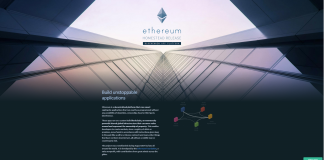This week Coinsilium held its Blockchain Tech Lab in London. A variety of speakers from different blockchain related companies have presented to audiences at Runway East about the workings of the technology and benefits it can bring to a wide variety of situations. Presentations on the bitcoin blockchain, RootStock sidechain, Ethereum, BigchainDB, OpenChain, Coinprism, Factom, Rivetz and Ledger have been given.
On Thursday morning, Coinprism CEO Flavien Charlon spoke on the Open Assets Protocol, a development of Coinprism which enables users to issue and trade real-world assets like commodities, securities, currencies and smart properties on the bitcoin blockchain. It is currently used by organisations such as, NASDAQ, Overstock and Gyft.
One of the key features of this talk was the ability of Coinprism to handle and issue coloured coins in addition to bitcoin. Using the platform, it is possible to store and receive currencies, explore the blockchain, issue shares, distribute dividends and crowd sale amongst other things. Using the coloured coin option gives the opportunity to create your own currency coins, issue them as shares after funding has been received, or alternatively, distribute them as vote tokens which recipients can use to have an active choice in how a company is run or to decide options from choices given to them. It was also shown that it is possible to destroy the created currency, or part of it, which can be advantageous in situations where the currency is intended to be used as part of a gift card or similar feature.
After the initial presentation, Charlon walked the attendees through the process of creating and issuing their own coloured coins. Participants used the Coinprism testnet to create their own currency and then issued it to other members of the audience, showing the ease and speed at which it could be done, in addition to the flexibility of the system.
In the afternoon Factom, led by CEO Peter Kirby, described the working and intentions behind providing an unalterable record keeping system. Fundamentally, Kirby declared, Factom lets people prove data bits that have been recorded have not been altered since they were entered to Factom. Factom is a data layer that sits on top of the bitcoin blockchain and links into other prominent blockchains, such as Ethereum, and can publish hashes to provide unalterable and irremovable proof of existence.
Another issue that Factom is trying to solve is the problem of scalability, not only with carrying out a large number of transactions but also with locating specific data within the multitude of blocks. To achieve this and other goals, Factom are releasing different solutions, such as Factom Iris and Factom Hera. Iris gives the ability to build chains of data, allowing users to find data, and also allows users to comply with KYC, with identities able to be tracked over time. Kirby described that the next steps in this area was to allow the synchronising of multiple devices on one system of authority. In the future having sensors for devices which could automatically register data, whether pictures or records, instantly on Factom to provide immutable facts as and when they happen was noted as being a desirable achievement. On the other hand, Factom Hera is being designed as a private blockchain tool for massive scaling, on an Internet of Things city scale.
Next was a look at some use cases with Factom Apollo, a real-time auditing and verification tool which has been used to improve areas such as mortgage transfer. Here Kirby also confirmed that the Honduras project, where Factom aims to secure land title records, had progressed further after the project had been reported as being delayed at the end of last year. Currently being trialled in a few cities, it is hoped that it will be completed this year.
The choices behind some of Factom’s funding decisions were also explained. By using factoids as a cryptocurrency to purchase credits, Factom hopes to remove the desire for hackers and attacks to target them as, when converted into entry credits, there is no ability to exchange credits back to factoids or other Cryptocurrency. The only benefit a hacker would gain would be the ability to write on Factom, not monetary gain. The decision to require payment before writing was also taken to reduce the chance of people submitting spam or carrying out DDOS attacks.
Overall, the Blockchain Tech Lab had an overwhelmingly positive outlook for blockchain technology and attendees were excited to find out the many possibilities that were available and being developed.






